Improvement of Human and Environmental Health Through Waste Management in Antigua and Barbuda (SITR6-12)
23.04.2021
SUBMITTING ORGANIZATION
Marine Ecosystems Protected Areas (MEPA) Trust
DATE OF SUBMISSION
23/04/2021
REGION
Americas
COUNTRY
Antigua and Barbuda
KEYWORDS
Commitment · Actions · Partnerships · Changes in behaviours and attitudes · Waste management
AUTHOR(S)
Ruth Viola Spencer
Marine Ecosystems Protected Areas (MEPA) Trust, St Johns, Antigua and Barbuda
LINK
Abstract
Antigua and Barbuda is currently experiencing an expansion in integrated waste management driven by local community groups. These events are catalytic and transformational, fit well into SEPLS methodologies, and contribute to many of the biodiversity targets and Sustainable Development Goals (SDGs). With waste being a direct driver of and major challenge for biodiversity, climate change and land degradation, many positive multi-dimensional impacts are being seen, realised and manifested that contribute positively to reducing land-based sources of pollution through community stewardship. Such local actions positively impact the sustain- able management of natural resources and the protection of habitats. Likewise, they support land degradation neutrality, protection and safeguarding of the ecosystems that provide our soil, air and water resources, sustain livelihoods, and facilitate transfer of knowledge to children and youth.
This attempt to pilot a circular economy approach is providing vocational and life skills training, as well as income generation for the local community, including new forms of capacity building and development, while reducing soil, water and air pollution. Public-private partnerships built through this project are motivating other groups to follow a similar path to biodiversity transformation. Changes in attitudes and behaviours, and the building of knowledge and capacities in the next generation, is taking place through school and community outreach programmes.
The project has led to community empowerment in understanding that everyone has a role to play in sustainable development and that through collective actions, changes to improve public health can be made.
1 Introduction: Context and Challenges
Antigua and Barbuda is a Caribbean Small Island Developing State (SIDS) and recognised as a biodiversity hotspot with many fragile and sensitive ecosystems, including dry forests, wetlands, salt ponds and oceans (Antigua and Barbuda Meteorological Service 2020). The islands are challenged by natural hazards including hurricanes, earthquakes, fires, floods, and in recent years, excessive influx of sargassum seaweed. Residents are very dependent on the oceans for food and livelihoods, leading to vulnerability towards the impacts of climate change (Table 12.1).
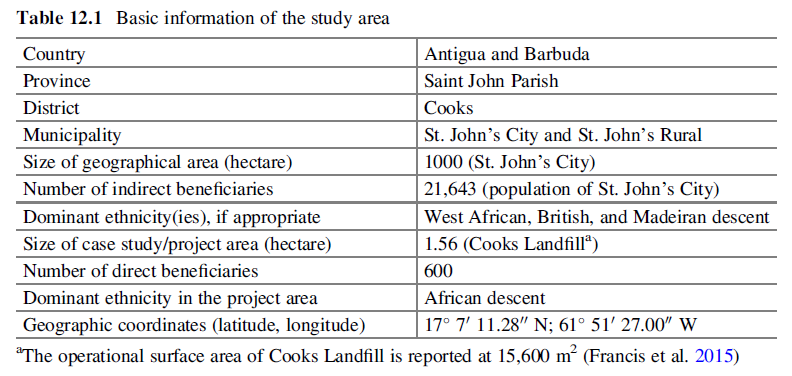
Our wetlands include a variety of ecosystems, such as mangroves, lagoons, estuaries, and marshes, which host endemic species, as well as provide ecosystem services including water drainage and filtration, food resources and coastal stabilisation, enhancing resilience against natural hazards. Oceans provide ecosystem services including tourism, which generates one of the largest financial incomes for the country; however, they are impacted by overfishing, land-based pollution, ocean warming, sea-level rise and invasive alien species.
Antigua has signed on to most international conventions and has many legislations on the books, including the Environmental Protection and Management Act (No. 10 of 2019) which established an integrated and sustainable environmental management system. However, enforcement remains an issue. Key for buy-in and local ownership is making the linkages between biodiversity conservation or environmental health and human health, since we all live in the same environment. The threats that unsustainable development wield directly on our fragile ecosystems undermine the important role these ecosystems play in disaster risk reduction and providing services and functions to people and nature. Accordingly, this role needs to be better understood by policymakers. Land use needs to be better planned, such as by integrating mandatory environmental impact assessments. Unplanned land clearing and development for housing and tourism is leading to poor and uncovered soils. When it rains, the soil erodes, not only generating risk of landslides, but also degrading the water quality of rivers and oceans.
The study area is located in the Cooks District of St John’s City, the capital of Antigua and Barbuda. Over 20% of the national population resides in St John’s City, and it is also the gateway for over one million tourists to the nation every year. A majority (73%) of tourists arrive on cruise ships (Antigua and Barbuda Tourism Authority 2019). With a rapidly increasing tourist population, waste management has been a concern in the study area. A mechanism for collecting waste from cruise ships exists in accordance with Annex V of the International Convention for Prevention of Pollution from Ships (MARPOL 73/78), however, it has been pointed out that the system needs improvement to achieve sustainability. All waste from the nation is officially disposed of at one site, the Cooks Landfill (Gore-Francis and Ministry of Agriculture, Housing, Lands and the Environment 2013). Household waste received at the Cooks Landfill as of 2014 was 20,909 t/year (Francis et al. 2015). The Cooks Landfill site is situated next to mangrove wetlands and Hanson’s Bay Flashes (Fig. 12.1), a designated International Birding Area and feeding ground for the Vulnerable West Indian Whistling-duck (Dendrocygna arborea) (BirdLife International 2020). Hanson’s Bay Flashes consists of a terrestrial ecosystem (a low-lying mangrove wetland) and a marine ecosystem (mostly undeveloped bay with seagrass and coral reef). It also serves a critical function as a watershed, and is deemed an area of hydrologic importance (Devine et al. 2010).
Normal annual rainfall between 1981 and 2010 was 1049.2 mm. Antigua has been facing severe drought conditions since March 2020 (Antigua and Barbuda Meteorological Service 2020).

Fig. 12.1 Map of the study area

Fig. 12.2 Cooks landfill (source: Marlon Jeffers, Belmont Studios)
Drought conditions exacerbate water issues, and the single utility company covering the entire islands of Antigua and Barbuda spends considerable amounts of resources to purify polluted groundwater supplies of chemical substances, including those which may be leaching out from the Cooks Landfill (Fig. 12.2). The landfill currently lacks testing facilities and monitoring points. The local community does not have access to scientific data or measurements of the impacts of the pollution, but can visibly see the massive degradation of the surrounding mangroves and other vegetation. Currently domestic waste is not segregated when it is collected, and all kinds of waste are carried to the landfill. Sanitary waste is stored at an old disposal site.
To improve the waste management in the country, education and awareness- raising is carried out at the community level, such as through schools and church programmes. Through education and awareness-raising, it is hoped that enforcement of rules and legislation, such as the National Solid Waste Management Authority Act, will improve.
2 Local Actions
The local actions of Wills Recycling (WR), a private enterprise, and the Zero Waste Antigua Barbuda (ZWAB) show proactive work that the outcomes of the 2019 Rotterdam negotiations can build on for several waste issues, including marine plastic litter and microplastics (Fig. 12.3). WR/ZWAB has been building synergies and partnership with local groups, including the Antigua Barbuda Waste Recycling Company (ABWREC). The West Indies Sailing Heritage (WISH) Foundation’s Ocean of Opportunities Project for Plastic Upcycling is determined to make a national breakthrough in pioneering the full utilisation of hundreds of tons of shredded plastic waste lying idle in Antigua to make furniture. Funds for designing the technology are currently being sought for this process.
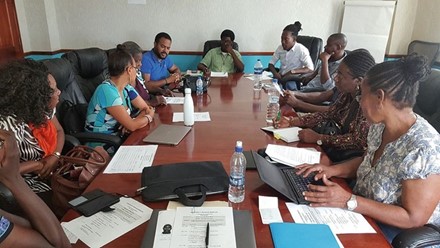
Fig. 12.3 ZWAB meeting (Source: ZWAB)
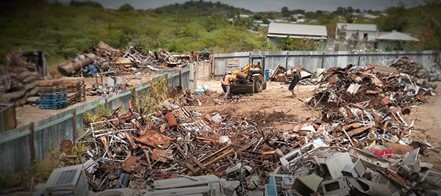
Fig. 12.4 Wills recycling (source: Marlon Jeffers, Belmont Studios)
WR felt the compulsion to take action after observing daily the number of truckloads of mixed waste material going into the Cooks Landfill, only to be buried by heavy machinery. WR’s visionary and pioneering effort led to the set-up of a metal waste recycling centre right outside of the entrance to Cooks Landfill, and each day it is abuzz with activity (Fig. 12.4). WR’s concern for human and environmental health has been translated from ideas into actions, including support for waste pickers, many of them women, using their bare and exposed hands to dig into the heaps of garbage. WR provided advice, training and a cash incentive to enable them to have an income. WR also saw oil and dangerous metal residues leaking into the soils and impacting the wetlands located next to the landfill, anticipating high risks to soil and ground water.
In the context of transformative change as proposed by IPBES (2019), the project conducted by WR strongly influenced the following levers: incentives and capacity- building; cross-sectoral co-operation; and decision-making in the context of resilience and uncertainty. The leverage points shown to be effective in the context of this project were: visions of a good life; reduction of waste, values and action; inequalities; justice and inclusion in conservation; technology, innovation and investment; and education and knowledge generation and sharing. In addition, the impacts from the direct and indirect drivers of environmental degradation were significantly reduced through the strengthening of socio-ecological resilience systems.
3 Results
Only 3% of global environmental funding is spent to address chemical and waste issues. Yet, in Antigua and Barbuda, local actions propelled by passion, commitment, and dedication are robust, strong and directed to pioneering good practices for waste management. The focus on the concept of one health for humans and the environment is attracting youths. People have experienced a striking realisation that health depends on clean air, soil and water, and that positive collective action is required because the issue affects everyone.
The relationships between key stakeholders in this project are depicted in Fig. 12.5. WR also provides training in the protection of personal health required for the waste sorting process. The ongoing building of relationships with key private sector groups and state agencies is having a catalysing impact and motivating other groups to follow the path to biodiversity transformation in their villages and com- munities. Relationships are being built and strengthened and conversations are ongoing, even with other scrap metal dealers as the granulator set up by WR on the island is being positioned to stop all open burning. The buy-in of other stake- holders is encouraging and is leading to positive impacts on human and environ- mental health.
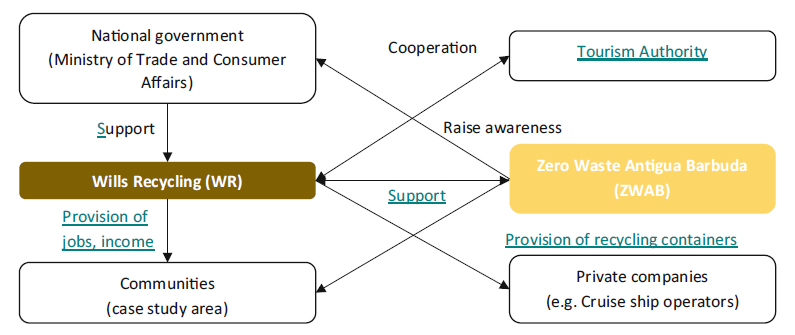
Fig. 12.5 Key project stakeholders (Source: author)
The transformation process involves efforts to change attitudes and behaviours by building the knowledge and capacities of boys, girls, men and women, who through their involvement in the school and community outreach programmes and visits to observe the actions at the WR waste site, are able to learn and see how waste, which previously was buried with harmful effects on our health and our environment, can be repurposed and reused. The positive outcomes on people’s health are evident, especially the health and well-being the of the residents in the nearby densely populated districts of Green Bay, Gray’s Farm, Perry Bay and Hatton.
WR’s efforts at building coalitions with cruise ships, hotels and utility companies to redirect their waste streams supported by related inter-agency dialogue and national sharing processes, is also providing content for national public education, as well as outreach and advocacy on the waste challenges facing the country and local workable solutions. Building synergies demonstrates a unified approach that brings high visibility at the national level and a pathway to national buy-in, which in turn brings about changes in the attitudes and behaviours of the people. Teachers are joining the local groups and advocating for the changes through school systems and educational processes. WR’s efforts have been showcased on national media, featured in six national reports and a video made of its efforts to safeguard biodiversity. WR is one of the key groups selected for the International Union for Conservation of Nature (IUCN) “Plastic Waste-Free Islands” project, working with Asia Pacific Waste Consultants to engage with local people through surveys and provide data on plastics and microplastics.
WR has been manufacturing movable waste storage containers recycled from waste iron and other metals that hotels, cruise ships and utility companies can utilise in the sorting and separation process of their waste management. Most of the hotels and cruise ship ports are located in marine areas. WR is represented as one member of the executives of the newly formed Zero Waste Antigua Barbuda, an NGO, and has been very active in the “Clean is Cool” campaign in partnership with the Tourism Authority. This campaign carries out strong outreach in villages and schools and is currently implementing a national programme for the phase out and phase down of mercury by 2020. WR has been involved in providing safe disposal for light bulbs and fixtures containing mercury. In activities spearheaded by the Ministry of Trade and Consumer Affairs, WR is a key player in demonstrating actions that residents can emulate to become “sustainable consumers”.
The planning of programmes and policies related to this project has always included a wide range of partners with the vision of working together to share knowledge and information based on inclusion and wide participation in a whole- of-society approach. This has been widely recognised in the country (Annex 1).
The challenge is to bring understanding and awareness to everyone through a bottom-up approach, especially to the government technicians who draft policy documents. Efforts towards mainstreaming and integrating information from other stakeholders in other sectors are taking place. The Department of Environment’s Technical Assistance Committee must be applauded for setting up an inter- ministerial group which meets monthly and is now going on its 50th meeting. The meetings include a wide range of stakeholders, such as government technicians, the private sector, NGOs and local community representatives.
With the formation in 2018 of Zero Waste Antigua Barbuda (ZWAB), WR began to serve as treasurer and mentor of the group, which has a strong youth following (Fig. 12.6). WR has been actively involved in the ongoing programmes and activities of the new group, using it as a platform for wider stakeholder involvement. These include implementing a national mercury management programme in line with the targets of the Minamata Convention on Mercury. The programme is implemented through various pathways, including involvement of medical clinics and facilities on the island, development of new alternative products, and training of customs officials for awareness and capacity building.
The socio-ecological production landscapes and seascapes (SEPLS) approach helps to eliminate harmful practices, which in the long run negatively impact the health of ecosystems and result in deforestation and land degradation, leading to soil erosion, landslides, and flooding that impact communities. Antigua and Barbuda, as a small country, cannot afford to lose the fundamental services that our ecosystems provide, such as watershed services, soil protection, erosion control, disaster risk reduction, carbon sequestration and climate regulation. Our tourism sector, which provides 75% of our GDP, has also faced impacted with multiple types of livelihoods that support many families through eco-tourism activities at risk. Likewise, hikes, walks through nature trails, birding and other recreational services all support human and environmental health and wellness activities.
Forest and other ecosystem restoration contribute to many goals and targets set at the global and regional level under multilateral environmental agreements and other frameworks. The local groups in Antigua and Barbuda have benefited from capacity building, knowledge sharing and networking support targeted at the Caribbean and provided through the support of the Korean Government’s Forest Ecosystem Restoration Initiative (FERI). The knowledge received is helping to support local actions in the implementation of the Strategic Plan for Biodiversity 2011–2020 and the Aichi Biodiversity Targets. This knowledge is also helping in the peer review process for the Global Biodiversity Framework (GBF), and the SEPLS approach has brought many stakeholders to share in discussions and deliberations.
Antigua and Barbuda has committed and set Land Degradation Neutrality (LDN) targets, and WR, a member of ZWAB, which is accredited by the United Nations Convention to Combat Desertification (UNCCD), is also seeking membership in the Global Mercury Platform. WR is actively promoting local actions and building synergies and partnerships with extensive outreach to meet the LDN targets. Some- times it is the proactive local actions of groups like WR and the engagement of private citizens that awaken and spur policymakers and technicians to take actions at the national government level to protect and conserve our ecosystems. Due to overlap between the main drivers of land degradation, soil and biodiversity loss, there is great potential to bring LDN targets and policies in line with existing and future commitments on biodiversity and climate change.
WR is one of the first groups to feed data and information on metal waste into the environmental registry being set up in the government-led Environmental Information and Management System (EIMAS). WR has also made an effort to collect and share information that has been fed into the 6th National Report to the CBD. Moreover, new and additional data on adaptation and mitigation actions will also be fed into the Biennial Update Report (BUR) for the United Nations Framework Convention on Climate Change.
Since its inception in 2013, WR has exported more than 7500 tons of metals for recycling (Fig. 12.7). According to WR, cost of goods sold, expenses and profit respectively account for 37%, 48%, and 15% of revenue.
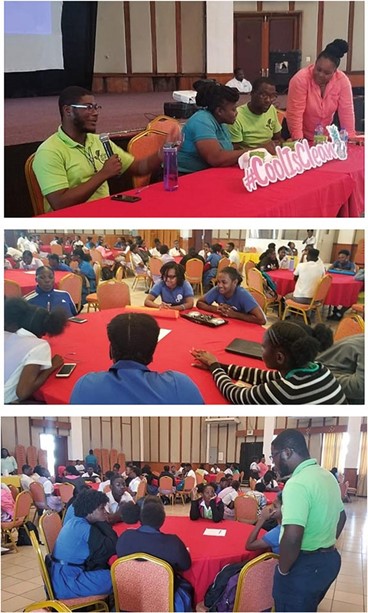
Fig. 12.6 “Clean is cool” events with the Tourism Authority to educate and bring awareness to youths (Source: ZWAB)
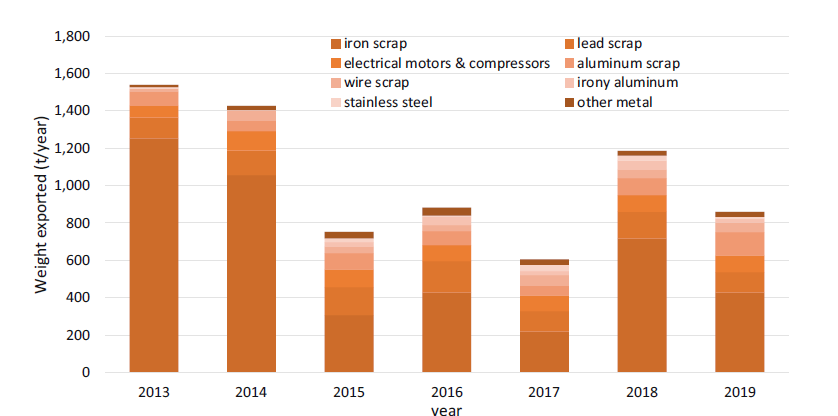
Fig. 12.7 Summary of metal waste exported from Antigua and Barbuda for recycling (2013–2019)
4 Findings and Lessons Learned
The concepts of SEPLS fit into many landscapes where humans, nature, local culture, heritage and knowledge can all be linked and fully integrated into local biodiversity. In the case of the local actions taken in Antigua and Barbuda described above, the key considerations of stakeholder engagement and the continual evaluative process, as well as shared understanding and collective visioning, have led to the empowerment and capacity building of local community groups, with Wills Recycling leading and pioneering this process. The steps of gathering knowledge and information, and developing strategies and plans with stakeholders to implement actions, are both realised and ongoing. WR has provided people with awareness of how well-being is dependent on nature and its contributions to people, showing that highlighting the multiple values of ecosystem functions and nature’s contributions to people leads to better outcomes. This case study demonstrates a bottom-up approach to transformative change, whereby multi-stakeholders continued to be proactive in finding and supporting community-driven approaches to protect and conserve the environment and to building, strengthening and promoting integrated landscape management. This case study will enable local groups to get recognition and visibility and will help to build new and additional skillsets and capabilities. Resources and technical support for data gathering, scientific studies and other IT upgrades are needed, thus the project seeks to access opportunities that can extend and enlarge our boundaries. WR actions have shown many benefits, including enhancing MEA synergies, alignment with many targets, and promoting knowledge and awareness among youth, children, teachers and private citizens.
Use of the SEPLS approach in a small island context aimed at societal transformative changes is gradually being manifested in results on many development objectives and represents a workable and observable alternative to other conventional efforts. It fully supports a whole-of-society approach that includes the involvement and participation of private sector businesses, with many new partnerships and coalitions being developed. Citizen engagement is also growing. Now, when the local people see harmful practices and actions, they have begun to make these known publicly across the airways on talk shows or social media, bringing attention to the negative impacts on our biodiversity.
Such growing local awareness and actions are contributing positively to the long- term sustainability of our natural resources, protection of habitats, protection and safeguarding of the ecosystems that provide our soil, air and water resources, livelihoods creation, and transfer of knowledge to children and youth. Likewise, supporting and mentoring other community-led biodiversity enhancement efforts is leading to the upscaling of similar programmes.
Challenges remain in gathering scientific evidence for accelerating implementation and monitoring. There is an urgent need for monitoring points to be set up across the island and in the wetlands around the Cooks Landfill to capture data that can be shared in scientific studies and to measure the impacts on human and environmental health of the various forms of pollution. The proactive efforts described herein will continue to be included in calls and proposals directed at governments, particularly related to issues that target local actions and have strong opportunities for partner- ships in national projects aimed at building capacities. The way forward calls for inclusive and participatory governance processes.
Annex 1
Newspaper article: “Public urged to participate in ‘plastic free’ data gathering exercise” (Orville Williams, The Daily Observer, 19 February 2020).
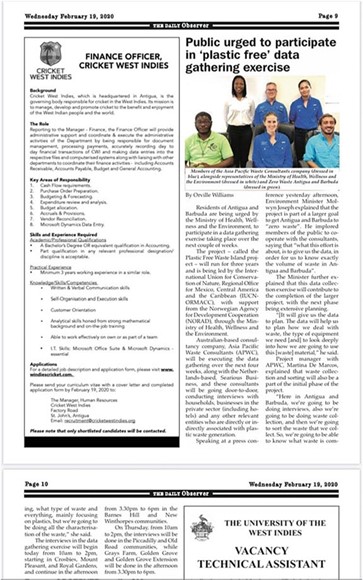
References
Antigua and Barbuda Meteorological Service. (2020). Climate section. Retrieved 24 November, 2020, from http://www.antiguamet.com/Climate/
Antigua and Barbuda Tourism Authority. (2019). Antigua and Barbuda receives over one million visitors for 2018. Retrieved 24 November, 2020, from https://visitantiguabarbuda.com/wp- content/uploads/FOR-IMMEDIATE-RELEASE-Antigua-and-Barbuda-Welcomes-Over-1-Mil lion-Visitors-in-2018.docx
BirdLife International. (2020). Important bird areas factsheet: Hanson’s bay – flashes. Retrieved 25 November, 2020, from http://www.birdlife.org
Devine, B., Drayton, N., Lindsay, K., Thomas, T., Cooper, B., & Nieves, P. (2010). Assessment and mapping of Antigua and Barbuda ecosystem resources and promoting a system of protected areas for Antigua and Barbuda. Retrieved 25 November, 2020, https://parkscaribbean.net/wp- content/uploads/2014/09/Protected-Areas-Analysis-for-Antigua-and-Barbuda-2010.pdf
Francis, S. K. Y., Higano, Y., Mizunoya, T., & Yabar, H. (2015). Preliminary investigation of appropriate options for Leachate and Septage treatment for the Caribbean Island of Antigua, in Collected papers for presentation in the 52nd annual meeting of the Japan section of the RSAI, Okayama, Japan. Retrieved 24 November, 2020, http://www.jsrsai.jp/Annual_Meeting/PROG_ 52/ResumeD/D02-4.pdf
Gore-Francis J., & Ministry of Agriculture, Housing, Lands and the Environment (2013). Antigua and Barbuda SIDS 2014 progress report (July 2013). Retrieved 24 November, 2020, https:// wedocs.unep.org/bitstream/handle/20.500.11822/8437/Antigua_and_Barbuda.pdf? sequence 3&isAllowed y
IPBES. (2019). Global assessment report on biodiversity and ecosystem services of the Intergov- ernmental Science-Policy Platform on Biodiversity and Ecosystem Services. Bonn: IPBES Secretariat.
Laws and Regulations
Environmental Protection Act, Antigua and Barbuda, No. 10 of 2019.
The Disaster Management Act, Antigua and Barbuda, No. 13 of 2002.
The National Solid Waste Management Authority Act, Antigua and Barbuda, No. 6 of 2005.
Note
The opinions expressed in this chapter are those of the author(s) and do not necessarily reflect the views of UNU-IAS, its Board of Directors, or the countries they represent.
Open Access This chapter is licenced under the terms of the Creative Commons Attribution 3.0 IGO Licence (https://creativecommons.org/licenses/by/3.0/igo/), which permits use, sharing, adaptation, distribution and reproduction in any medium or format, as long as you give appropriate credit to UNU-IAS, provide a link to the Creative Commons licence and indicate if changes were made.
The use of the UNU-IAS name and logo, shall be subject to a separate written licence agreement between UNU-IAS and the user and is not authorised as part of this CC BY 3.0 IGO licence. Note that the link provided above includes additional terms and conditions of the licence.
The images or other third party material in this chapter are included in the chapter’s Creative Commons licence, unless indicated otherwise in a credit line to the material. If material is not included in the chapter’s Creative Commons licence and your intended use is not permitted by statutory regulation, or exceeds the permitted use, you will need to obtain permission directly from the copyright holder.

